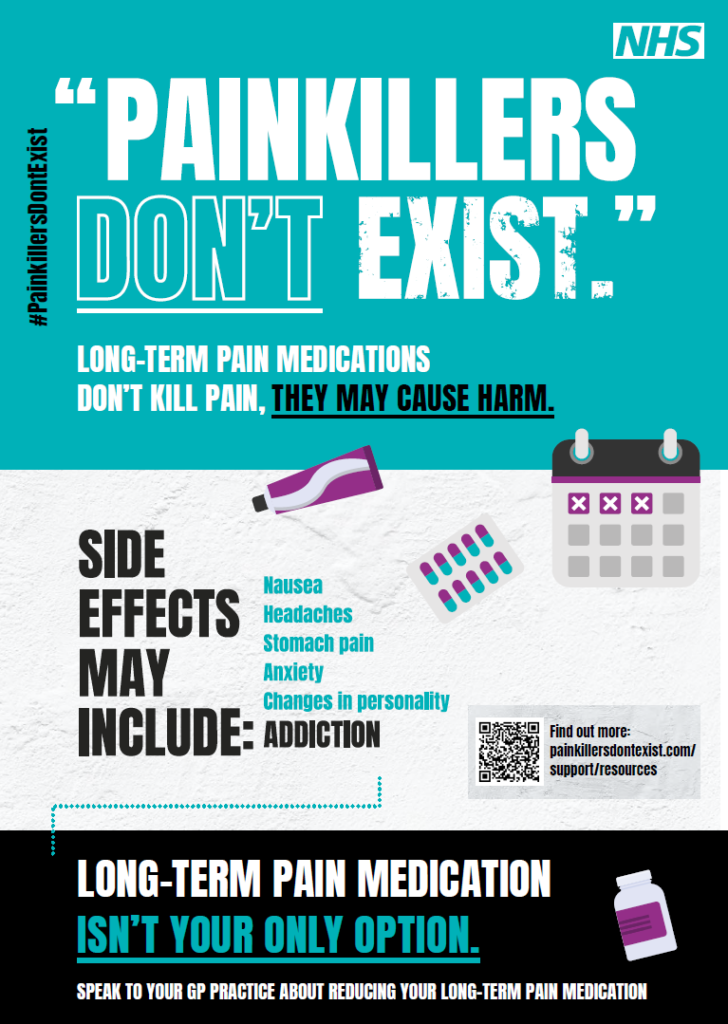
Persistent pain and pain medication
Some people find that the medication side effects, which can occur in up to four out of every five people taking pain medication, can become more of a problem than the pain.
Data indicates that more than 35,000 individuals residing in Essex depend on consistent strong opioid medication to alleviate chronic pain, with only one in four experiencing any discernible relief.
Specifically, within mid and south Essex, approximately 22,000 individuals receive prescriptions for strong opioids. Among them, 1,267 individuals are administered high doses of opioids, equivalent to 120mg or more of morphine per day.
Living with persistent pain
Living with and managing persistent pain on a daily basis can be overwhelming. Unfortunately, there is no one-size-fits-all solution, and relying solely on opioid pain medication is not the answer. Recent studies indicate that between a third and half of the UK population, approximately 28 million adults, are living with persistent pain. However, most long-term pain medications only benefit around 1 in 4 people and typically provide only a 30% reduction in pain.
To raise awareness about the risks of painkiller addiction and promoting alternative approaches to managing persistent pain NHS Mid and South Essex are launching a new “Painkillers Don’t Exist” campaign.
“I was addicted. I couldn’t do without it, if I missed a dose I’d know straight away.”
Painkillers don’t exist
The “Painkillers Don’t Exist” campaign aims to initiate conversations about painkiller addiction and challenge the misconception that medication alone can alleviate all pain. By promoting awareness and offering resources for alternative pain management strategies, the campaign seeks to empower individuals to take control of their pain management journey and improve their overall wellbeing. Local people can log onto the “Painkillers Don’t Exist” website to find out more about the negative effects of pain medication, resources for chronic pain management, and advice on how to talk to your GP or practice pharmacist about reviewing your medication.
Dr Matthew Sweeting, Executive Medical Director for NHS Mid and South Essex stresses the importance of addressing pain management beyond medication alone: “Living with persistent pain can be really hard and it requires a multifaceted approach. Whilst opioid medications are very good at managing acute pain e.g. a fracture, long term use can often cause more harm than good. Taking opioid medication for longer than 3 to 6 months increases the risk of you becoming unintentionally addicted as well as other side effects. Our campaign aims to empower individuals to explore alternative strategies for managing their chronic pain effectively instead of relying on, potentially harmful, opioid pain medication.”
